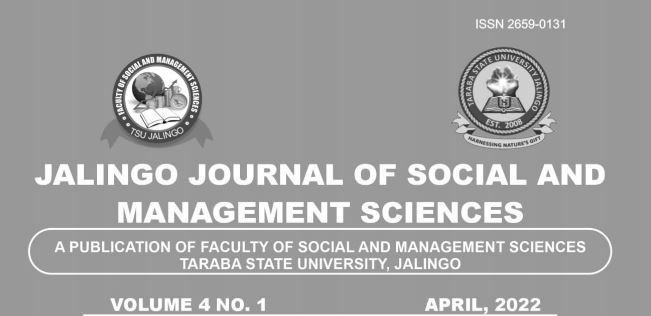Assessment of Effects of Flood Risk on Social Vulnerability in Gombe Metropolis, Nigeria
Keywords:
Coping strategies, Flood risk, Gombe Metropolis, Social vulnerabilityAbstract
In the last three decades, the effect of flood risk on social vulnerability has resulted in loss of lives and properties. This study assesses the effect of flood risk on social vulnerability in Gombe Metropolis. The survey research design was used for data collection. 250 questionnaires were administered using systematic sampling procedure. The data was sourced from the field through personal observations, structured and unstructured interviews. The objective was achieved using inferential statistical. The findings revealed that heavy rain fall is ranked the number one factor that is responsible for flood incidence in Gombe metropolis (52%), follow by poor waste management (24%) and lack of good layout plan (15%). More so, some respondent opined that if there were good constructed drainages, flood incidence and its effects would have reduced by 75% in Gombe metropolis. The study findings revealed that the effects of flood risk on social vulnerability in Gombe metropolis is becoming more worrisome to residents living within the urban areas, as 61% of the respondents admitted that they were affected by flood disasters financially, 19% socially and 7% were psychologically affected. Flood incidence took place almost every year in some places within Gombe metropolis especially areas like Tudun wada and Jekada fari, while places like G.R.A., Federal low-cost, Bolari haven’t experienced flood. Moreover, the nature of waste management and building plan also contributed to the occurrence of the flood and loss of live and properties. Based on the findings, the study recommended multi-disciplinary approach by the relevant authorities in reducing the effects of flood risk on residents of the town.

Downloads
Published
Issue
Section
License
Copyright (c) 2023 JALINGO JOURNAL OF SOCIAL AND MANAGEMENT SCIENCES

This work is licensed under a Creative Commons Attribution-NonCommercial 4.0 International License.
